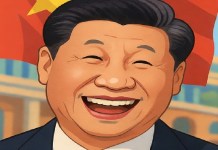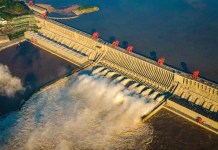Less than a week after India deployed 10,000 security forces in the Kashmir Valley, the Modi Government has dispatched additional 25,000 soldiers to the restive region, fuelling wild speculation.
Pro-Khalistan Movement Against India Clearly Financed by Pakistan
Earlier, Delhi dispatched about 10,000 soldiers to the valley which the officials termed as a move to strengthen the counter-insurgency operation in Kashmir and maintaining overall security.
Meanwhile, the Amarnath Yatra has been suspended till August 4. While the Indian government cited hostile weather conditions but experts stated that a large contingent of troops deployed for the Yatra were being moved for other duties.
Earlier, uncertainty and anxiety gripped the Kashmir Valley after New Delhi ordered to deploy additional 10,000 paramilitary troops. A day after National Security Advisor (NSA) Ajit Doval returned from the Jammu and Kashmir, speculations were rife that Modi Government is planning something big in the valley like scrapping the article 35A.
With the total deployment of additional 35,000 soldiers in the valley plus soldiers picked from the Amarnath duty, experts state that something big is likely to happen in the region.
Are Drugs, Money and Religion Driving Stone Pelting in Kashmir?
Rumours are spreading in the Kashmir Valley that the Central government could be heading towards a complete abrogation of Article 35-A. Some have even speculated that the matter could be a part of PM Narendra Modi’s Independence Day address at the Red Fort.
Former CM – Omar Abdullah who met PM Modi today had earlier asked the Centre to wait for the verdict of the Supreme Court (SC) where a bunch of petitions challenging Article 35A and Article 370 are pending. “Why should you hurry? We will respect the decision of the Supreme Court as we have always done,” Omar Abdullah said.
Omar Abdullah further stated that the bureaucrats were spreading rumours asking people to store rations, medicines, fuel for automobiles, etc because a long haul of uncertainty was in the offering.
Can Article 35A Be Abolished?
The contention is that the rhetoric of abrogating Article 35A from the Constitution would have devastating manifestations in Jammu and Kashmir. These statutes are seen as the pillars of the relationship between India and the state of J&K; the removal of these articles would lead to catastrophic consequences.
If Article 35A is abolished, this would have a direct impact on the local communities within the region. Even though this would open up J&K towards ‘more opportunities’, it could possibly pave the way to further disintegration of the state.
Many experts claim that even if Article 35A is abolished it would not, in any manner, solve the problems in the Kashmir Valley. Furthermore, this would only lead to increased pressure from sessions forces to create further divide and bloodshed.
Locals are of the view that Article 370 and Article 35A are sources of identity and autonomy bestowed by the Constitution upon the indigenous people of J&K. The removal of would lead the state to descend into chaos as unemployment, poverty, loss of property would all rise exponentially.
These pieces of legislatures are the foundation for Jammu and Kashmir’s relationship with the Indian Union. Besides the evident political angle, the people of Kashmir are concerned that the large scale influx of industries upon the removal of Article 35A would harm the delicate ecosystem of the region as well. The mass migration would only trigger socio-cultural disintegration and a loss of identity among the indigenous people of J&K.
According to Kashmiri netizens talking to the EurAsian Times, if Article 35A is abolished, ir will be seen as a breach of trust by the local people. The hardships due to AFSPA and PSA, the constant interference of the Army and Central government in local issues have been etched in the memories of the locals, this act would only further the alienate the people of Kashmir from India.
What Do Kashmiri Separatists Say?
The removal of the Article 35A would make the Treaty of Accession null and void thereby making the citizens of Kashmir open to the militance of terror groups rampant in the region. There are concerns that the removal of this legislature from the Constitution is a blatant attempt at “saffronisation” of the country. If that is the case, the act would lead to further erosion of Kashmir’s autonomy and change the demographics of the Muslim-majority state.
The idea of removing the provision in the Constitution is preposterous and short-sighted. Any hasty attempt at “integrating Kashmir” would only open a Pandora’s box of problems.
The recent visits by National Security Advisor, Ajit Doval, and earlier visits by Amit Shah and the deployment of 10,000 personnel have only fanned the speculation on the abrogation of Article 35A.
The rather denominational view of citizenship and life in Jammu and Kashmir leaves many stones unturned about the nature of the fragility of Kashmir’s socio-political system. Instead of the jingoistic attitude that the Central government is found flaunting, it must consider rational and reasonable alternatives to the situation in Jammu and Kashmir. The abrogation of Article 35A would have a domino effect upon the people of Kashmir and cause irreversible damage. New Delhi must tread very carefully as the after-effects of Burhan Wani’s death still haunts the memories.




